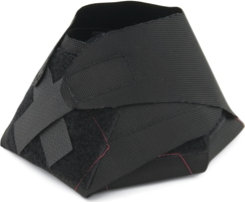Years ago I was talked into attending a reining clinic - they needed one more person to attend to make the minimum number of paying riders. When the clinician showed up he asked everyone want they wanted to work on. I laughed because I knew him and knew that we would be doing whatever he thought would benefit the majority of riders. It didn't matter what each rider wanted to do, or thought they needed to get better at. The next few hours was basically solving problems - correcting fundamentals we were doing badly, which in turn prevented each rider from accomplishing what they wanted.
I often get asked if I can run a Horsemanship 101 clinic or an Obstacle clinic or even asked for a list of what type of clinics I could do for a group. Rather than ask the obvious question of "what is your definition of horsemanship 101 or an Obstacle clinic?", I mostly answer that I don't do clinics or ride horses for the public for a living, but if I was to work with you or your group, and you needed a title for the day, then call it Problem Solving.
I think all clinics are problem solving. My apologies to the exceptional clinicians making a living conducting clinics who have titles for the various clinics they do. I don't have enough time left on this earth to gain the level of skill of this long list of horsemen and women, but I just can't help but think what they do is problem solving regardless of course titles.
If a clinician has a group of people riding the perimeter of an arena then stopping and backing, what that clinician is going to end up doing is correcting fundamental mistakes such as seat, balance, leg position and rein management for the stop and the back; getting the horse soft when you ask for vertical flexion; and even providing a release which are all too common issues needing to be addressed. There may be a horse who needs to get unstuck and sometimes a flagging a horse to get some momentum (and reason) to back. Some of the riders may think "what does this have to do with backing a horse", not realizing that backing a horse with his head high puts him off balance and causes the horse to push with his front feet and not get engagement from the back end. I think it all boils down to that there are no secrets to doing something, just the fundamentals executed well.
The same about doing an obstacle clinic. It's not getting a horse sacked out on a ground tarp or approaching a slicker on a fence, or even going through pool noodles. Although it is useful to use an obstacle to work on because the rider can learn to wait on his horse and these are good learning events for a horse - causing him to think. But even if in the course of a clinic you end up with your horse moving through each obstacle willingly, on a loose rein and without a moments hesitation, the next thing you face outside of that clinic be it a garbage can, a flapping bag in the branch of a bush, or even a monkey grinder (if you don't know what this is - google it) will be totally new. What obstacles are all about is you being the leader of the pair. The rider being able to move the horse's feet as needed; the horse being soft; the rider learning to wait on the horse, and the horse learning to think before reacting. These are the likely problems many riders have. They have to be addressed, not only for going through obstacles but to advance in anything you do on a horse's back.
I recently ran an "obstacle clinic" for 6 adults and 5 youths. I'm sure they did not get what they expected when I had them work on vertical and lateral flexion, moving the front end independently of the back, and the back end independently of the front end which all leads to being able to control the horse's barrel and move the horse laterally for a side pass or to two track (lateral movement with forward momentum) - something horse's just don't do on their own. Hopefully, I demonstrated that these basics are all necessary to be able to position up on an obstacle; making balanced turns; correcting backing when you get off angle or even intentionally backing with an angle or arc. Some of the time was spent correcting rein management - too tight of outside rein in a turn causing the horse's momentum to slow or stop; relying totally on the reins and not using leg cues; staying in contact with the horse's mouth - not giving any release- where the horse starts moving as he gets anxious. In any event, what we were doing by any other name was problem solving.
Speaking about Problem Solving, Marty Marten has written two excellent volumes on Problem Solving common issues with horses. Eclectic Horseman offers this two volume set for a very reasonable price.


















